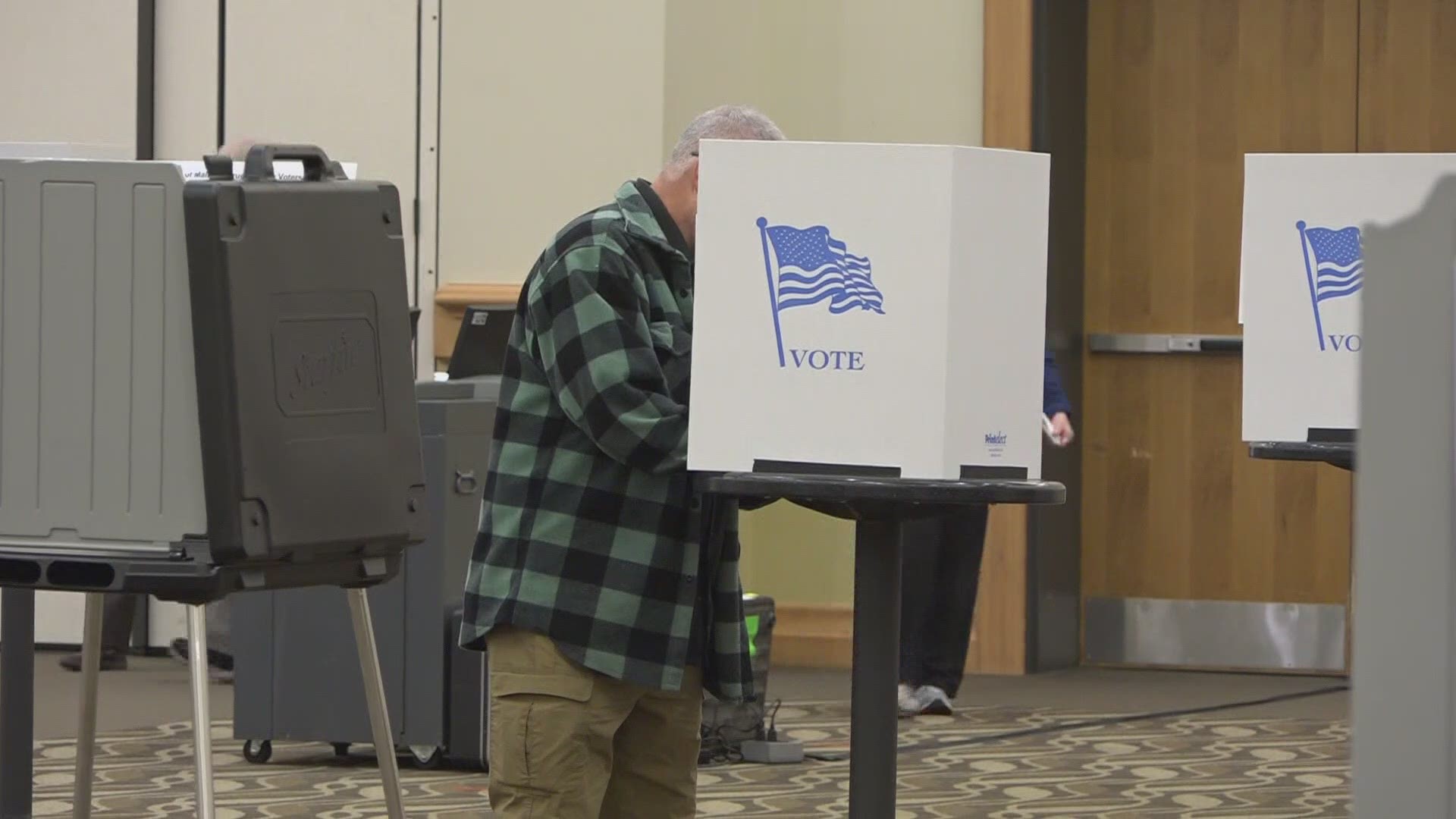MAINE, USA — After months of countless TV ads, mailings, signs, and debates, we are still waiting on presidential results. If you're feeling stressed out or anxious, you are not alone.
"Regardless of what your political affiliation is, I think, it's taking a toll on us mentally and physically," Dr. Rebecca MacAulay, a clinical psychologist and assistant professor at UMaine, said.
This year more than ever before, experts say people are on edge, and it's important to take care of yourself.
Chief psychiatrist Dr. Allen Schaffer from Community Health & Counseling Services in Bangor offers these tips:
- take social media breaks
- channel your stress into something productive
- look for signs of hope
A survey by the American Psychological Association after the last presidential election found that 57 percent of Americans said they were stressed by politics.
"What we have now is another stressor, on top of what's been you know nearly over a year of stress, and then we've had the pandemic on top of it," Dr. MacAulay said.
Matt Larson is a mental health researcher with the Human Improvement Project, a nonprofit research institution that focuses on 'what makes the biggest difference to long-term well-being,' according to Larson one of those is relationships.
This year's election season has added a lot of stress and anxiety to people. "It appears that it has significantly impacted our relationships," Larson said.
Larson further explains that many people post on social media without thinking about the different people with different viewpoints, which in the end is creating a more devise environment and even hurting our relationships with family and friends.
Larson suggests you can get rid of 'nervous energy' with physical activity, cleaning, doing chores, and staying busy and active.
"Look for signs of hope, we can always look at a situation and see the negatives in that but we can also purposefully go out and find hopeful things in this situation," Larson said.
The Human Improvement Project recently surveyd about 800 adults throughout the United States.
"We found that almost half of voters reported that they had weakened some of their ten closest relationships, and almost a quarter reported that they had lost some of these," Larson said.
People are frustrated because they don't know what the results are.
"It's like a sporting event where you really want to know 'did your team win or did your team lose,'"' Larson said.
"I think that they should be prepared to be disappointed, either positively disappointed or negatively disappointed, because life, like elections, often doesn't turn out like we want it to be," Dr. Schaffer said.
"Everybody wants to know what's going to happen and anxiety is the apprehension that is going to turn out to be dangerous for them...that things that they counted on won't be there...things that they ere afraid of will be there," says Dr. Schaffer.
Dr. Schaeffer says this year he has seen more drug and alcohol-related problems. "It's important to remember that the substance that causes more harm in Maine is alcohol, and people really need to be careful in how they use alcohol in dealing with anxiety," says Dr. Schaffer.
"Substance overdoses are increased, substance-related deaths are increased, and people appear to be using more substances to deal with isolation, anxiety, and depression," Dr. Schaffer said.
"Most of us are probably having a stress-hangover," MacAulay said.
MacAulay says this election period started longer than what it would be normal and it started to be a chronic stressed for people.
These are some steps Dr. MacAulay recommends:
- The first step is recognizing what you are feeling. "Taking good self-care."
- Mindfulness walking and mindfulness eating. "Doing things that will nurture yourself is so critically important right now."
- Take long deep breaths and take a moment to appreciate the weather.
- Love and Kindness - "Something that you offer to yourself by not being judgemental about yourself and it has a healing component because we offer love and kindness to each other."
"We all want the good and so even though we are differing in how to go about that...I think it's time to start remembering what we have in common," Dr. MacAulay said.

